Session is the perfect stopgap until Skate 4 — if you can handle the learning curve
Session blends frustration and satisfaction perfectly
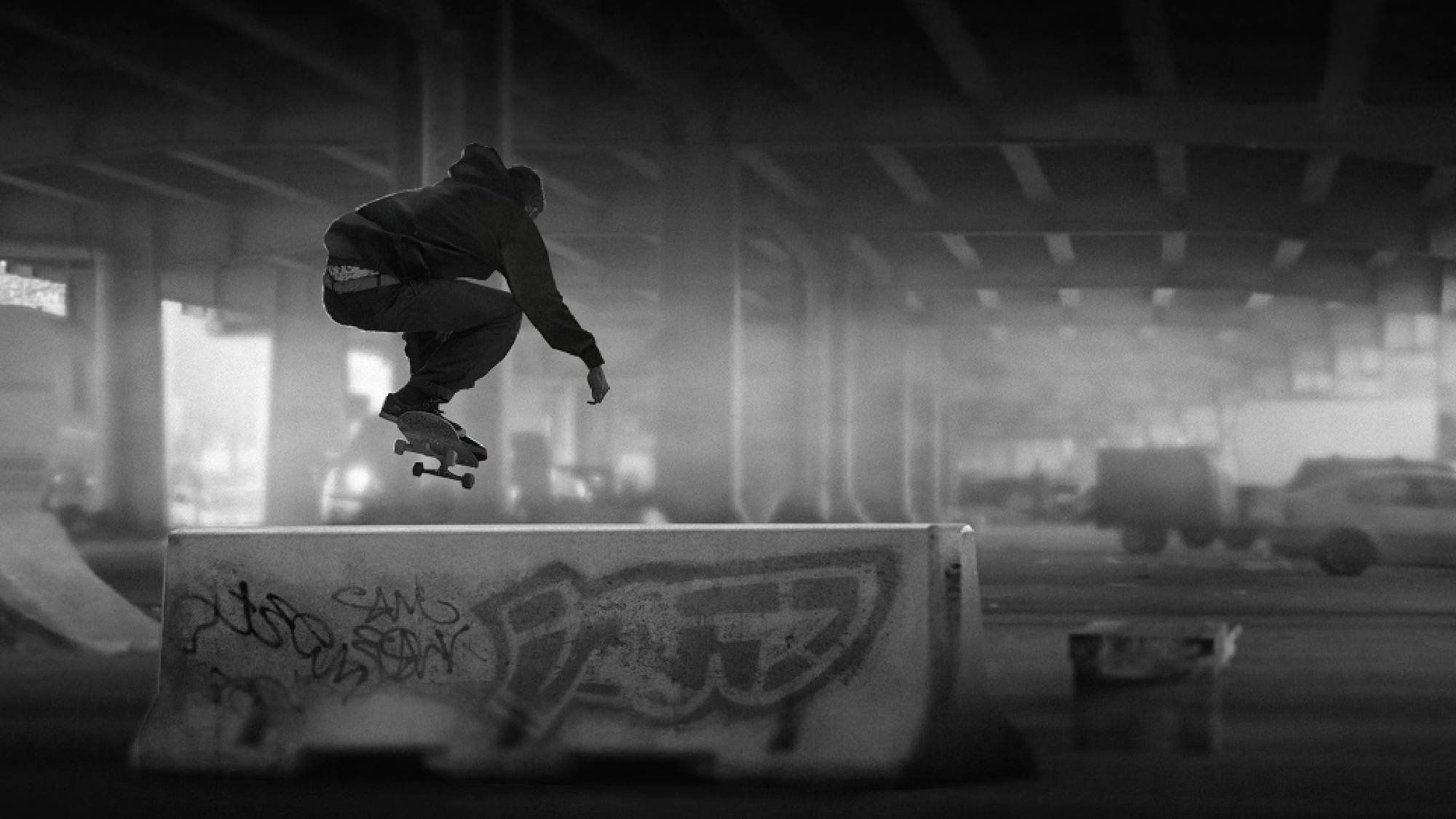
Welcome! This column is part of a regular series in which we share what members of the Tom's Guide staff are playing and enjoying right now, with an eye toward helping you find great games that you may have missed. Be sure to check out our previous entry, where we talk about Hell Let Loose.
Session, or to use its full title Session: Skate Sim, is aptly named. Released last month for the PS5, Xbox Series X, PC and last-gen consoles, it’s less concerned with being a video game and more focused on simulating the real-life sport of skateboarding as accurately as possible.
As a millennial who grew up worshipping professional skateboarders but with next to zero talent on an actual board myself, skateboarding video games have always been the closest I’ve ever got to the feeling of actually skating. That’s why EA’s Skate series was an obsession of mine growing up, and the news that the franchise is returning for a Skate 4 in the future has me almost indescribably excited.
However, the next entry in the Skate franchise is likely still a couple of years away from a full release. So, in the meantime indie games like Session have arrived to fill the void. And, you’ve got to give developer Crea-ture Studios some serious kudos for doing such a respectable job in the interim. While Session has its fair share of problems and limitations, it also nails the feeling of skating in a way that arguably no other game has before.
Putting in the work
The first thing you need to know about Session is that your first couple of hours with the game will probably suck. The game’s control scheme — which mimics the movements of real-life skateboarding by assigning each of your skater's feet to a thumbstick — feels extremely unintuitive the first time you pick up a controller.
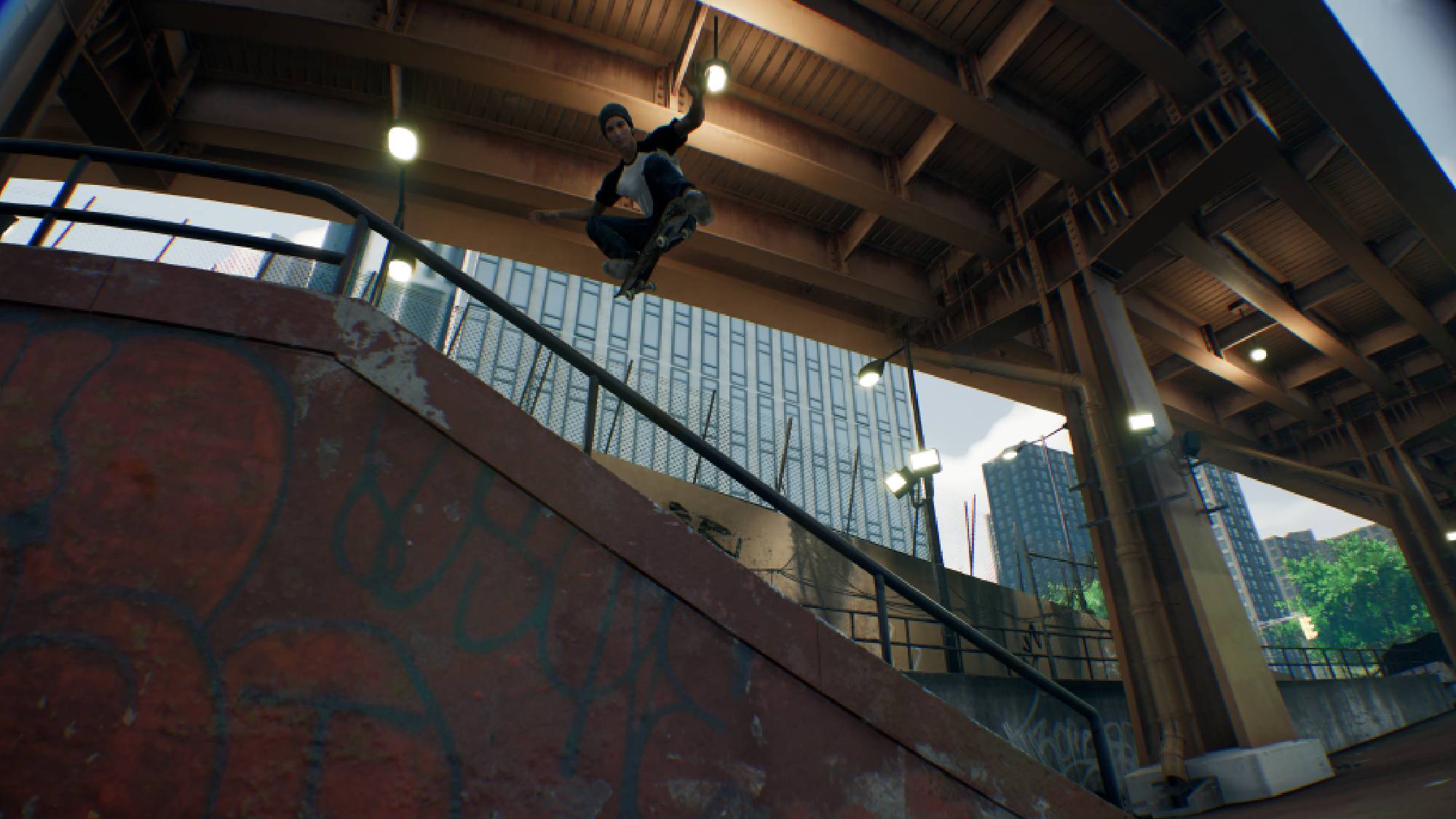
Even when compared to a game like Skater XL, which offers a somewhat similar control scheme, the fundamentals of Session’s gameplay are extremely finicky. Just wrapping my head around the inputs required to pull off the most simple tricks took several tries (and more than a little bit of cursing).
The game’s limp tutorial doesn’t help matters either. Session is definitely a game that needed a very guided introduction that slowly walks players through the basics, but unfortunately, you’re thrown in at the deep end and must teach yourself to swim after only the briefest of pep talks from an underqualified instructor.
If you’re coming from an arcade skateboarding game like Tony Hawk’s Pro Skater, it’s a night and day difference. While the former empowers you to pull off ridiculously complex combos within just minutes of picking up a controller, Session demands you put in the practice to successfully nail even the beginner moves.
Things start to click
While my first few hours with Session were mostly spent getting worked up over my inability to perform a grind without bailing, after some practice, and half-an-hour spent fine-tuning the the very in-depth customization settings, things finally started to click.
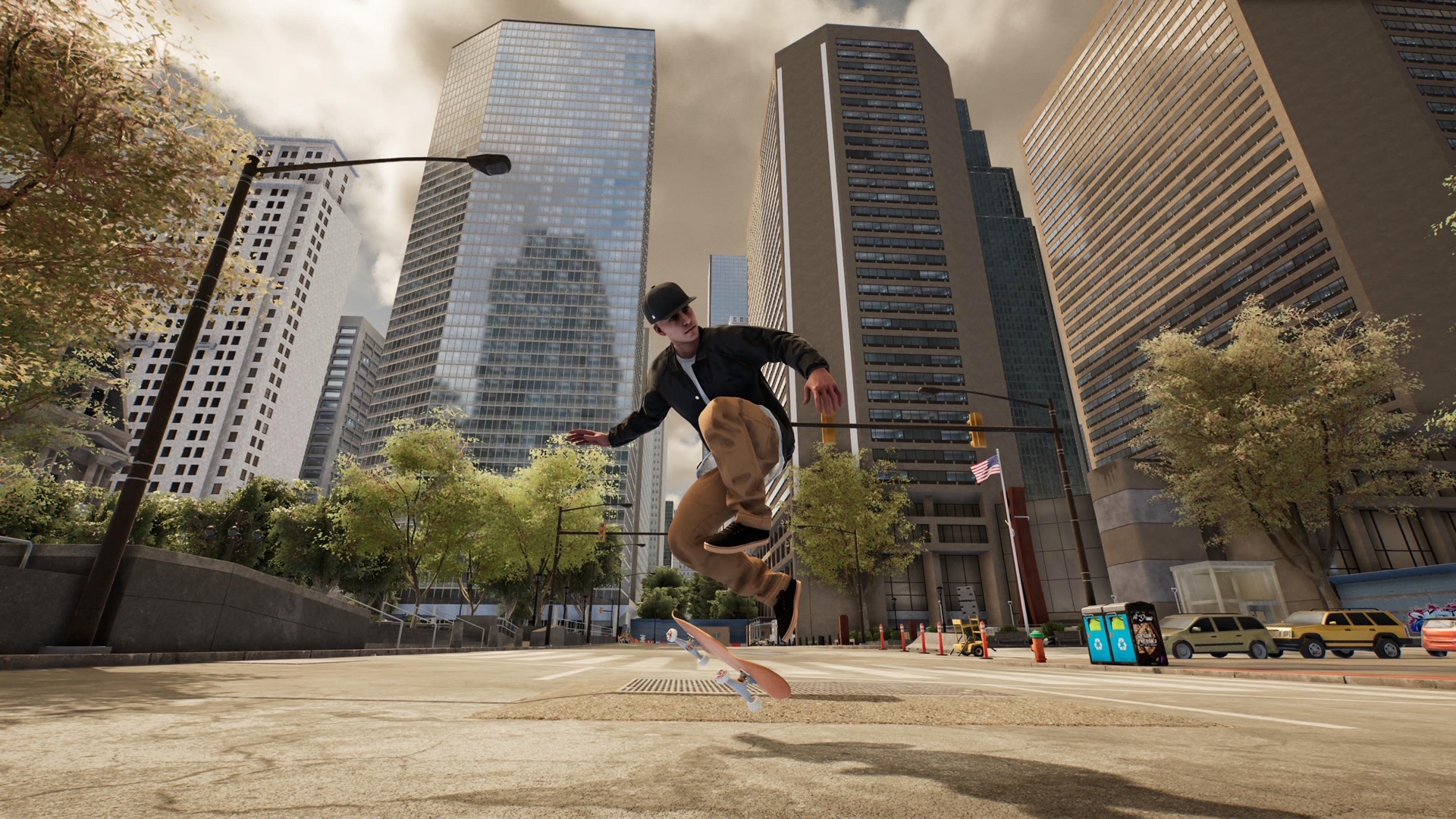
It was at this point, that Session finally hooked me. The satisfaction of landing even a rudimentary line comprised of three of four very simple tricks feels better than in just about any other skateboarding game. The requirement to hone your abilities is also very authentic to skating in real life. After all, nobody is able to instantly kickflip the first time they step on a board.
Skateboarding is as much an art form as it is an extreme sport, and practice really does make perfect. Session captures this sense of progression wonderfully. You don’t improve by leveling up your character or unlocking new gear or skill points. You’re only capable of landing more impressive tricks and lines because you’ve improved as a player through your own perseverance and mastery of the controls.
Session is not the first skateboarding game to succeed because of this gameplay loop, but the level of initial difficulty does make its learning curve the most satisfying to conquer. Even after just a dozen hours of play, I already feel like my Session skills have dramatically improved to the point where I now feel comfortable classifying as an intermediate player.
A half-empty bag of tricks
This isn’t to say that Session doesn’t have its fair share of limitations. One of the biggest is that the game doesn’t encompass the entire world of skateboarding. It only really replicates street skateboarding, the vert discipline has been left pretty much untouched.
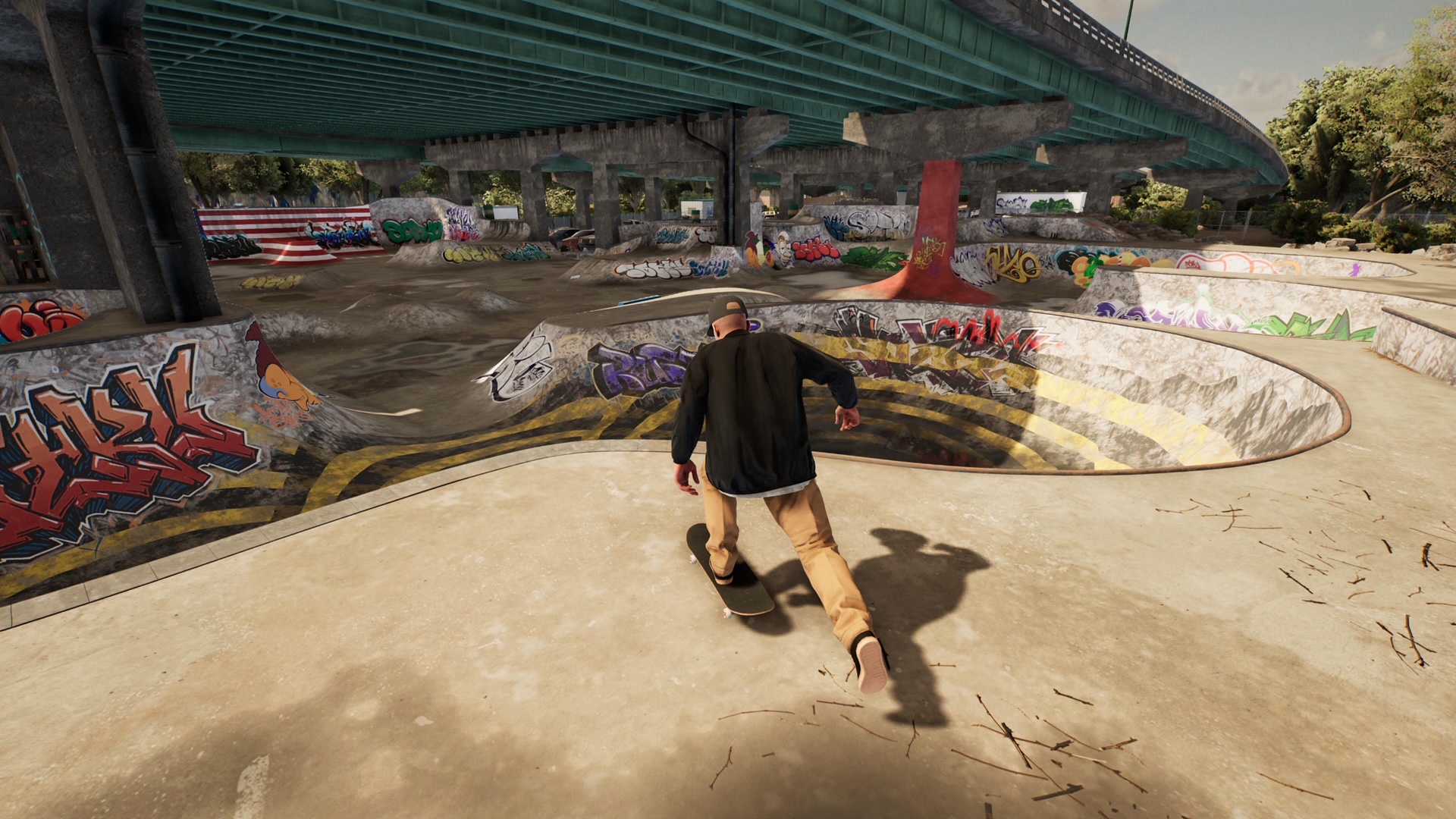
There is a location (FDR Skatepark) in the game's digital recreation of Philadelphia that looks ripe for vert skating with half-pipes, large bowls and wave ramps but the lack of grab moves, and the wonky physics when you try and get some proper airtime makes its inclusion feel puzzling.
Again, if you’re coming from the Tony Hawk’s or EA's Skate franchises, you’ll almost certainly be disappointed by the limited trick list. You can’t do much more than flip tricks, grinds and manuals. There’s a whole wide world of skating that Session just glosses over and that does feel like a missed opportunity. Perhaps a future update will add in the laundry list of iconic tricks currently missing.
Rough around the edges
Unfortunately Session is also severely lacking in polish. This is somewhat understandable as the title started life as a Kickstarter project before being launched in Early Access in 2019, but any prospective player needs to prepare themselves for plenty of wonky animations and moments where the in-game physics break.
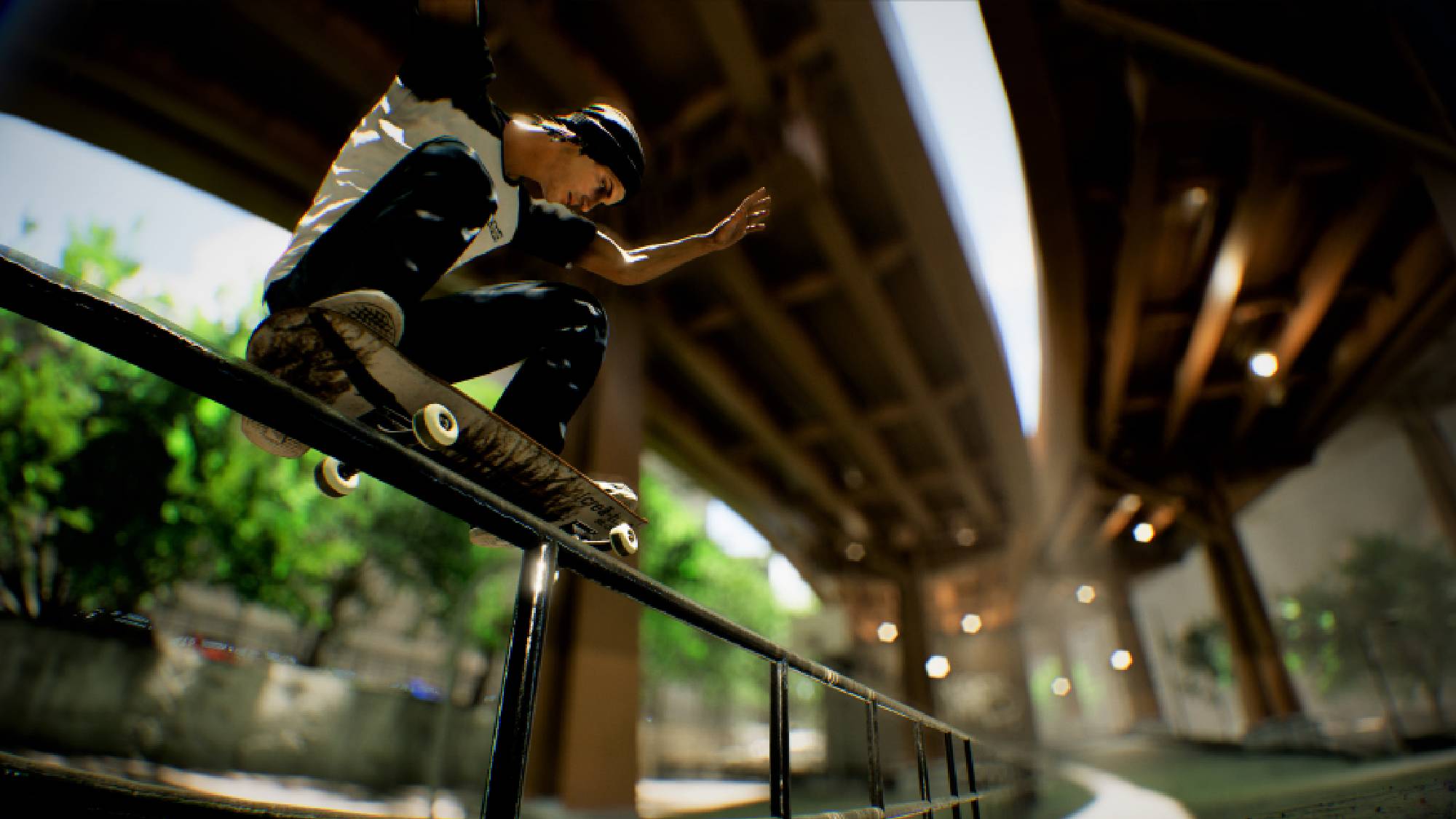
Thankfully, I’ve not encountered anything game-breaking so far. And there is something oddly charming about how goofy many of the glitches are. It’s hard not to laugh when your skater’s feet pass straight through their board, or when your avatar randomly keels over as if they’ve just been shot from a distance by an expert sniper.
You’ve got to remember that despite its attempts at photorealistic graphics, Session is an independent game with a smaller budget to match. Some degree of jank has to be tolerated, and Session is fun enough to play that I’m willing to overlook much of the technical shortcomings. But a few patches are definitely needed in the future as my patience for bugs and glitches isn’t limitless.
A stopgap not the full package
I’m currently enjoying my time with Session, and plan to play more hours in the hopes of being able to hone my skills enough to put together a proper video reel like the ones I used to watch back in the day. Some of the ones already shared on social media have me very jealous of the talent in the player base. However, it’s definitely not the fully fleshed current-gen skateboarding game I'm craving.
The game is lacking a proper campaign, instead only offering a selection of basic challenges that offer little incentive to the player to complete. Instead, I’ve spent almost all of my playtime with Session to date just cruising around its three maps looking for cool spots to skate while soundtracking the game myself with a favorite throwback pop-punk playlist.
I’m hopeful that Skate 4 will deliver similar mechanical depth while also offering a little more video game-ness by giving me larger goals to chip away at. Of course, until EA’s cult classic franchise returns, I’ll keep plugging away at Session. Hell, maybe the game will even inspire me enough to get back on an actual board and see if I can finally land a kickflip in real-life.
Sign up to get the BEST of Tom's Guide direct to your inbox.
Get instant access to breaking news, the hottest reviews, great deals and helpful tips.

Rory is an Entertainment Editor at Tom’s Guide based in the UK. He covers a wide range of topics but with a particular focus on gaming and streaming. When he’s not reviewing the latest games, searching for hidden gems on Netflix, or writing hot takes on new gaming hardware, TV shows and movies, he can be found attending music festivals and getting far too emotionally invested in his favorite football team.